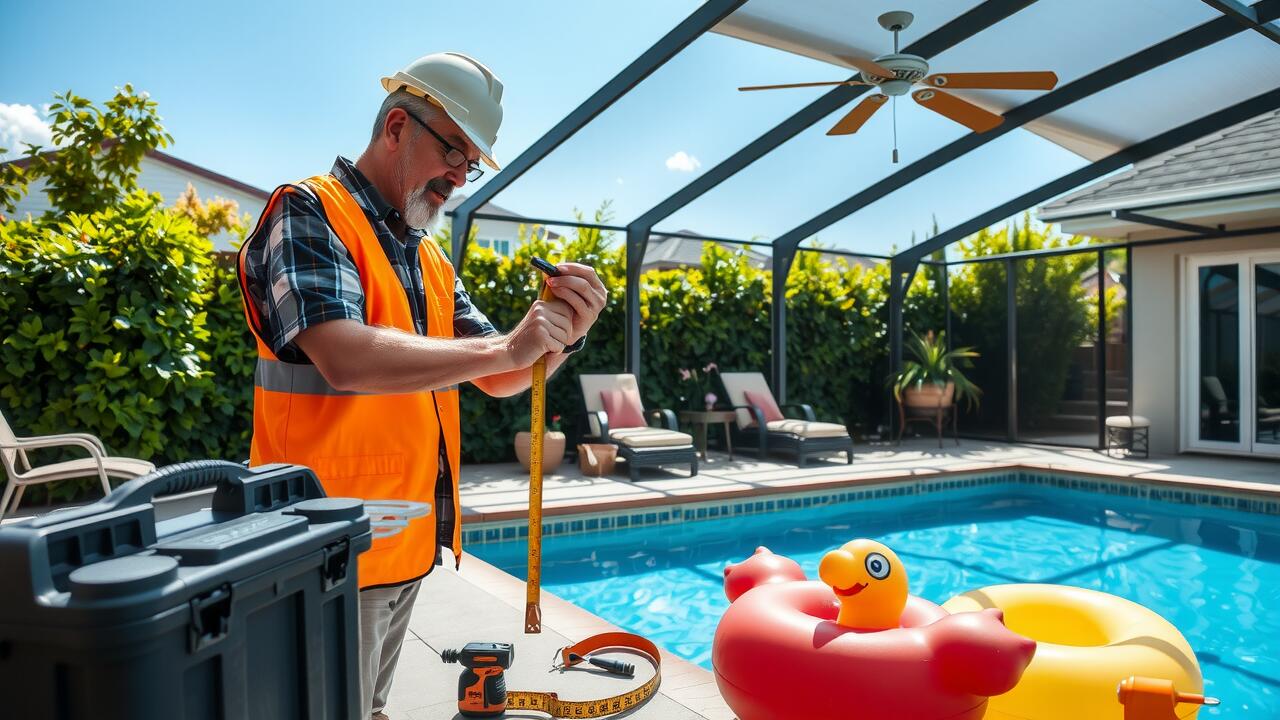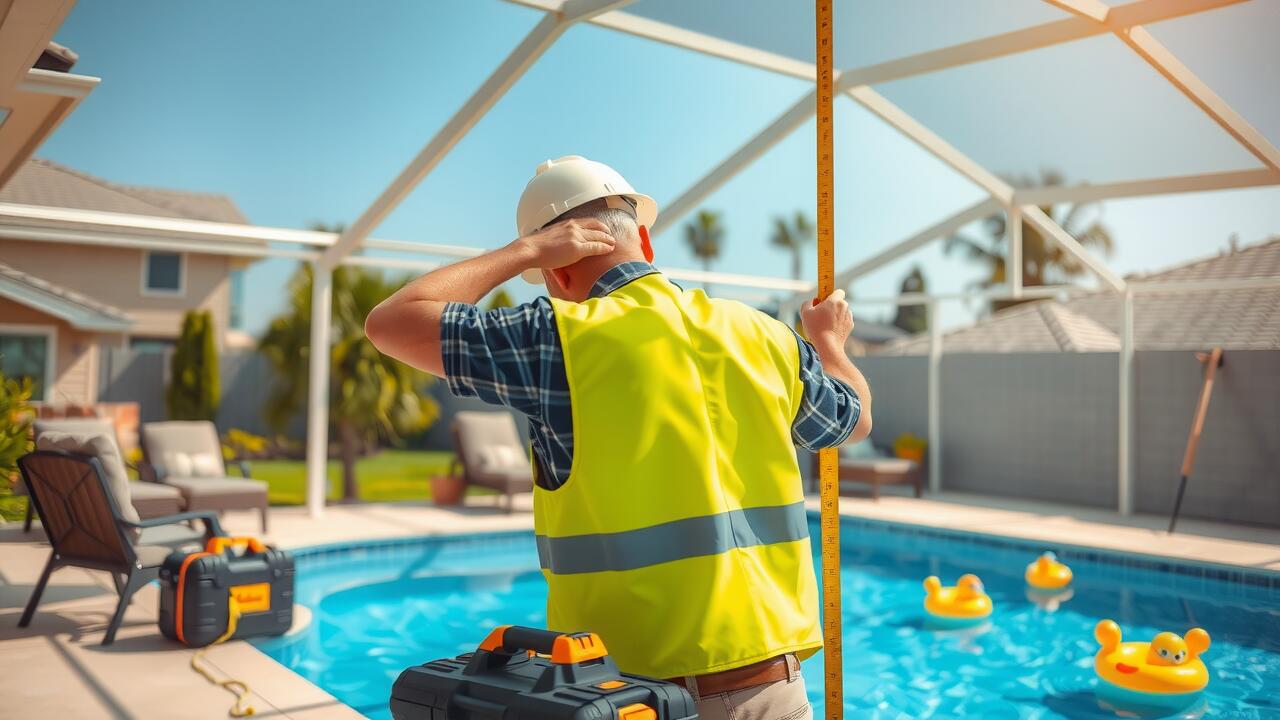
Regional Variations in Value Impact
The impact of pool enclosures on home value varies significantly across different regions. In areas where warm weather is prevalent and pools are common, like Florida and parts of California, the addition of a pool cage can be seen as an enhancement. Buyers in these markets often prioritize outdoor living spaces, making a well-designed enclosure a valuable feature. Conversely, in regions where colder climates dominate, the importance of pool enclosures diminishes. Here, potential buyers might view them as unnecessary, which can limit their influence on property values.
Local real estate trends also play a crucial role in determining how much pool enclosures impact home value. In some neighborhoods, a pool cage may be considered a desirable amenity, aligning with community preferences for outdoor entertaining and leisure. In contrast, in areas that do not have a strong pool culture, the investment in a pool enclosure might not yield the expected return. Understanding these regional dynamics is essential for homeowners considering adding a pool cage, as they can greatly influence overall market appeal.
How Geography Influences Home Value
Geography plays a significant role in determining home value, particularly in regions where outdoor living spaces are a primary draw for buyers. In areas with warmer climates, such as Florida and Southern California, properties with outdoor amenities, including Pool Enclosures, often command higher prices. The appeal of enjoying the outdoors year-round, coupled with the ability to extend the swimming season, enhances the attractiveness of homes with these features. Buyers in these regions frequently prioritize properties that offer both aesthetics and functionality, reflecting their lifestyle choices.
Conversely, in cooler climates, the demand for Pool Enclosures may be less pronounced. Homes in these areas might focus more on indoor amenities that provide comfort during the colder months. Real estate trends indicate that while outdoor features can add value, their impact varies based on local preferences and weather conditions. Buyers in regions with shorter summers may not see the same value in Pool Enclosures as those in sunnier locales. This geographical influence ultimately shapes the desirability and valuation of properties, making it essential for homeowners to consider these factors when assessing their property’s worth.
Potential Challenges with Pool Cages
Homeowners may face several challenges when considering the installation of pool enclosures. These structures can be costly, requiring a significant upfront investment that not all buyers might be willing to make. Additionally, maintenance costs can accumulate over time. Keeping the enclosure clean and in good repair is essential, and neglecting this can lead to further expenses down the line.
Another aspect to consider is local building regulations and restrictions surrounding pool enclosures. Different regions have varying codes that govern how these structures can be constructed. Navigating this regulatory landscape can be complicated, and failing to comply with local standards may result in fines or the necessity of costly modifications. Homeowners should conduct thorough research to understand these requirements before proceeding with installation.
Considerations Before Installation
Before installing pool enclosures, homeowners should evaluate their specific needs and the environment around their property. The local climate plays a crucial role in determining the type and material of the enclosure. For instance, regions with high humidity or heavy rainfall may require screens that withstand moisture, while areas with strong winds might need sturdier frames. Understanding these factors not only helps in selecting an appropriate design but also ensures that the installation meets local regulations and permits.
Another important consideration is the aesthetic impact of pool enclosures on the overall property. While functionality is essential, homeowners should choose designs that complement their home’s architecture and landscaping. Potential buyers often appreciate a cohesive look, which can enhance property appeal. Investing time in researching various styles and materials can help in making an informed decision, ensuring that the enclosure adds value rather than detracting from the property’s charm.
Buyer Preferences and Pool Cages
Home buyers often prioritize specific features when searching for their ideal property. Pool enclosures can be a significant draw, particularly in regions with warm climates where outdoor living is valued. These structures not only provide protection from insects and debris but also enhance the usability of outdoor spaces throughout the year. Buyers looking for a property with a pool might see an enclosure as a necessary addition rather than an optional extra.
However, preferences can vary widely among potential buyers. Some individuals may prefer a more natural, unencumbered outdoor experience and might view pool enclosures as restrictive. Different demographics also exhibit varying attitudes toward these structures; families with young children may favor the safety aspect of pool enclosures, while younger buyers might prioritize aesthetics and open space. Understanding these preferences can help sellers position their properties more effectively in the market.
What Home Buyers Want in a Property
Home buyers today often seek features that enhance both aesthetics and functionality. Pool enclosures, for instance, have gained popularity due to their ability to create a seamless transition between indoor and outdoor spaces. Many buyers appreciate the added protection these structures offer, not only from debris but also from insects and harsh sun. The visual appeal of a well-integrated pool cage can make a property feel more luxurious, contributing to an overall impression of quality.
Another key factor influencing buyer preferences is safety, particularly for families with young children or pets. Pool enclosures provide a barrier that minimizes the risk of accidents, making homes more desirable for buyers with specific safety concerns. Additionally, energy efficiency can play a role in attracting prospective owners. An enclosed pool can potentially reduce heating costs and maintenance efforts, aligning with the preferences of environmentally conscious buyers.
FAQS
Does a pool cage really increase the value of my home?
A pool cage can potentially increase your home’s value, particularly in regions where outdoor living spaces are highly valued. However, the increase may vary based on local market conditions and buyer preferences.
How do regional variations affect the value of a home with a pool cage?
The impact of a pool cage on home value can differ significantly by region. In warmer climates, a pool cage might be seen as a valuable addition, while in cooler areas, it may not have the same appeal.
What are some potential challenges associated with installing a pool cage?
Potential challenges include the cost of installation, maintenance requirements, and possible zoning restrictions. It’s important to research these factors before deciding to install a pool cage.
What should I consider before installing a pool cage?
Before installation, consider your budget, the local real estate market, your personal use of the pool, and how a pool cage fits with the overall aesthetics of your property.
What do home buyers typically look for in properties with pools?
Home buyers often seek features like safety, usability, and aesthetic appeal in properties with pools. A well-designed pool cage can enhance safety and comfort, making the property more attractive to buyers.
